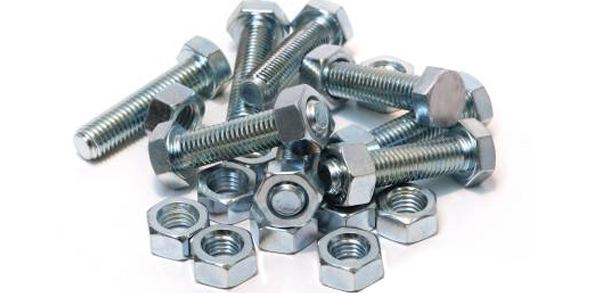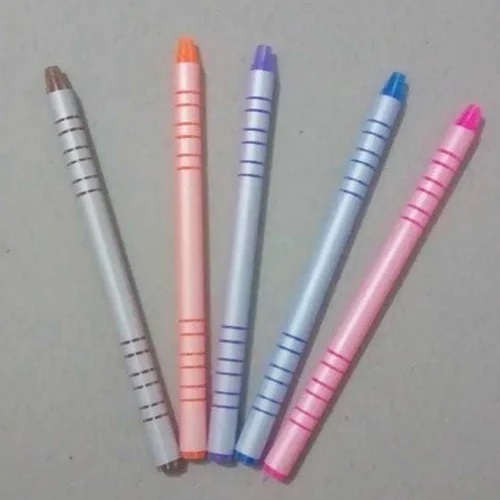In the rapidly changing landscape of Nigeria’s industrial and construction sectors, the demand for dependable and high-quality fastening solutions is on the rise. Bolts, as one of the basic and important components in construction and manufacturing, play a vital role in certifying the safety and constancy of structures and equipment wherever it’s fitted. To meet this rising demand, a burgeoning industry of bolt manufacturers in Nigeria has arisen, catering to the multiple needs of the different industries and the nation’s economy.
Uses of bolts in different industries
Construction Industry:
Building Construction: Bolts are used to connect structural elements such as beams, columns, and trusses in the construction of buildings.
Road Construction: Bolts are useful to secure and connect various components of road infrastructure, including guardrails, signs, and bridges.
Civil Engineering: These are useful and significant tools in large-scale civil engineering developments like dams, tunnels, and airports to hold together heavy structures.
Automotive Industry:
Vehicle Assembly: Bolts are crucial and useful parts for assembling numerous parts of vehicles, including engines, chassis mechanisms, and body panels.
Repair and Maintenance: In the automotive mechanics industry essential use of bolts to replace or repair components in vehicles, such as altering tires or installing new parts.
Aerospace Industry:
Aircraft Manufacturing: Bolts are essential tools or parts for connecting aircraft components, counting various parts like wings, fuselages, and engines, to ensure safety and structural integrity.
Spacecraft Construction: Specialized kinds of bolts are used in the connecting of spacecraft, satellites, and launch vehicles, where exactness and reliability are paramount.
Marine Industry:
Shipbuilding: Heavy bolts are used in the construction of ships and boats to secure hull sections, decks, and various components.
Offshore Drilling: Bolts are useful for the connection of offshore drilling rigs and gear, which must withstand harsh marine surroundings.
Oil and Gas Industry:
Pipelines: Bolts play a very significant and secure role in the pipeline sections and equipment used in the extraction, transportation, and distribution of oil and gas.
Refineries: Bolts are utilized in the manufacture and maintenance of refinery infrastructure, counting storage tanks and processing units.
Manufacturing Industry:
General Manufacturing: Bolts are used for the joining and connecting of machinery, equipment, and products across numerous manufacturing sectors.
Automated Assembly Lines: Bolts plays an important role of combined into automated assembly lines to certify reliable and accurate joining of components.
Renewable Energy Industry:
Wind Energy: It is importantly useful in connecting and joining wind turbine gears, ensuring the steadiness and dependability of wind energy systems.
Solar Energy: Bolts certify that the solar panels and mounting assemblies in photovoltaic installations.
Electrical and Electronics Industry:
Electrical Panels: Bolts are the useful part of joining the electrical panels, switches, and junction boxes in electrical systems.
Consumer Electronics: It has the important role for assembling electronic devices and appliances.
Railway and Transportation Industry:
Railway Construction: Heavy bolts are plays an important role to attach rail tracks and fasten gears of railway infrastructure.
Vehicle Manufacturing: Bolts are suitable in merging trains, trams, and other forms of transportation.
Mining Industry:
Mining Equipment: Bolts play a very important role in the construction and maintenance of mining machinery and equipment used for mining and processing.
Agricultural Industry:
Farm Machinery: Bolts safely join the numerous components of agricultural machinery, such as plows, tractors, and combines.
Telecommunications Industry:
Tower Construction: Bolts are useful for assembling and protecting telecommunication towers and antennas.
Medical Equipment Industry:
Medical Device Manufacturing: Bolts may be used in the connecting of medical equipment, such as surgical instruments and tomography devices.
How the Bolt Manufacturers in Nigeria can meet the bolt demand in the world
The development of bolt manufacturing in Nigeria
The current age of bolt manufacturing in Nigeria is intertwined with the country’s broader industrial development. As Nigeria has risen into one of Africa’s largest economies, the need for locally produced fasteners has become progressively evident. The development of the construction and manufacturing sectors, along with the government’s giving importance to local content development, has pushed the emergence of local bolt manufacturing companies.
Local bolt manufacturers have utilized the opportunity to supply a wide range of industries to the fullest that’s including construction, automotive, agriculture, and oil and gas. They are now offering a diverse collection of bolts, nuts, screws, and other fasteners, these companies have contributed significantly to the nation’s economic growth.
Bolt manufacturer overcome the challenges and grabs the opportunities
Even though the positive steps made by Nigerian bolt manufacturers, they face numerous challenges. One momentous challenge is the need for reliable quality control and following international standards. Guaranteeing that bolts meet the required obligatory workable strength, corrosion resistance, and toughness standards is paramount to the safety and consistency of structures and equipment. Apart from that the manufacturers must invest in advanced testing and quality guarantee procedures to gain the trust of consumers and compete on a global scale.
Another challenge that the manufacturer has overcome is the availability of raw materials. Bolt manufacturing must have the supplies of raw materials like steel and other metals on an ongoing basis. Local manufacturers must protect a steady supply chain to maintain production levels and meet market demand. Also, they have partnerships with local steel producers, and exploring alternative materials obtaining options can help mitigate these challenges.
Continuous innovation and technology
With the growing demand and potential Nigerian bolt manufacturers are progressively adopting modern manufacturing techniques and technologies to improve their productivity and competitiveness. This comprises the use of Morden computer-aided design (CAD) software for product design, automated production lines, and innovative quality control measures. By implementing and using these technological advancements, manufacturers can produce high-quality bolts professionally and cost-effectively.
Also, there is a rising emphasis on sustainability and environmentally friendly manufacturing procedures. Many bolt manufacturers are discovering and experimenting the ways to reduce their carbon footprint and promote eco-friendly practices in their processes.
Finally, the role of local content development
With the success and progress in bolt manufacturing the Nigerian government has played an essential role in supporting local content development in numerous industries, including bolt manufacturing. They have eased off the policies and regulations that arrange the use of locally manufactured bolts in government schemes have provided an important boost to the industry. This has stimulated further investment in manufacturing facilities and the growth of skilled labor in the country.





